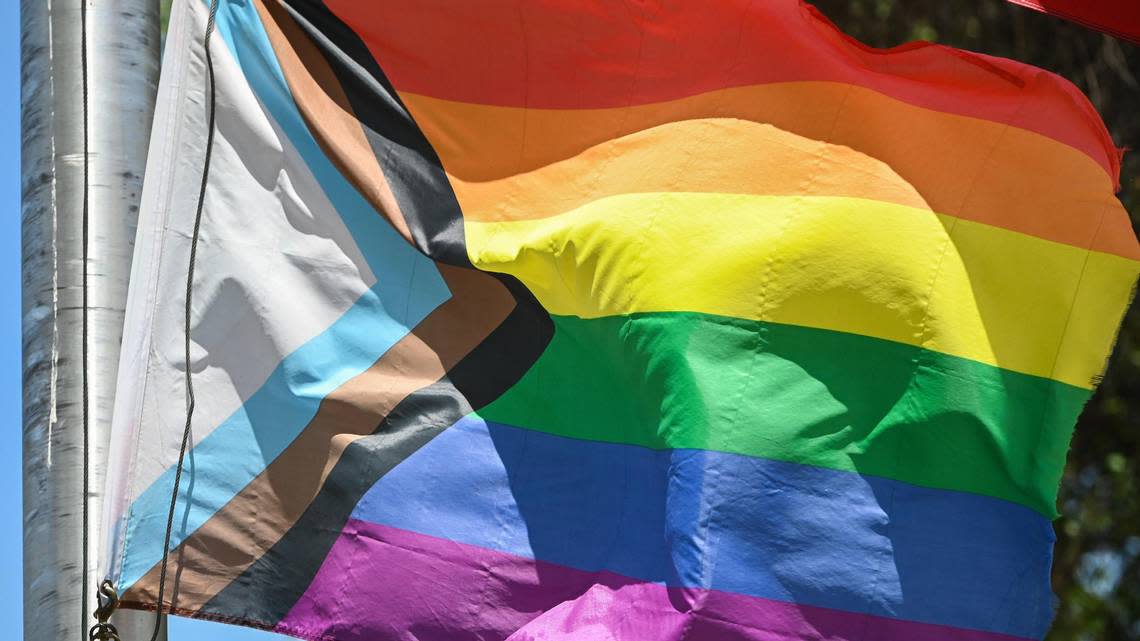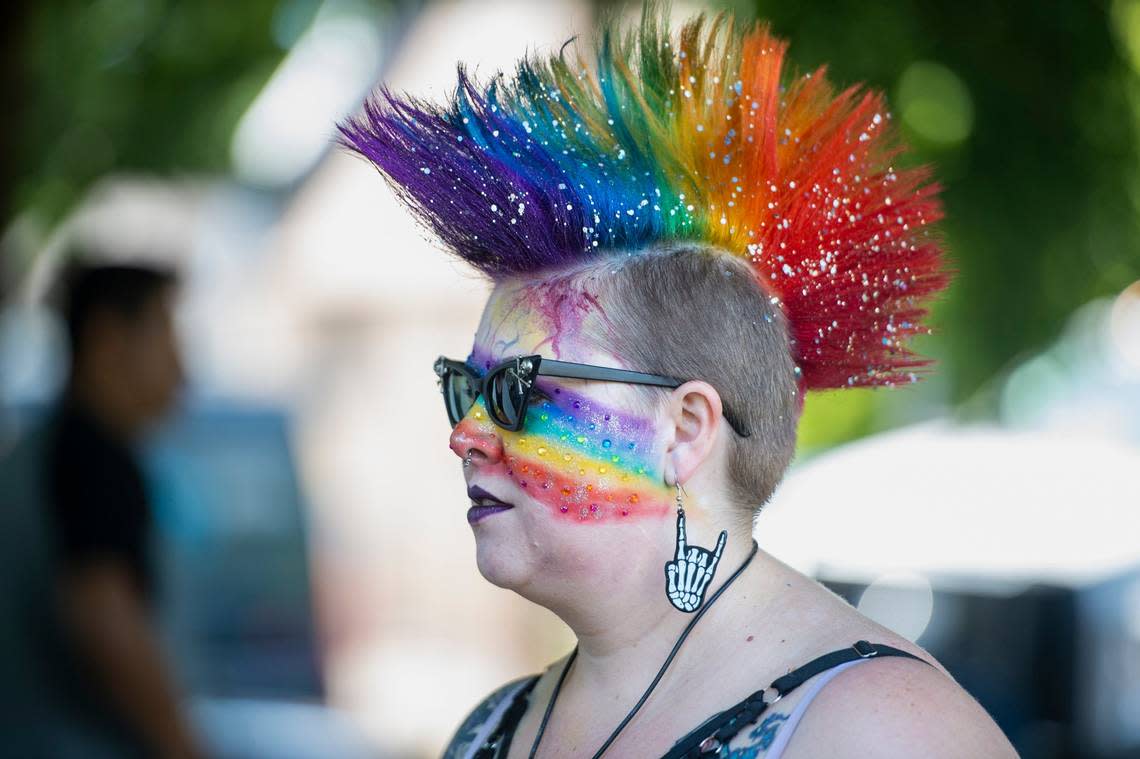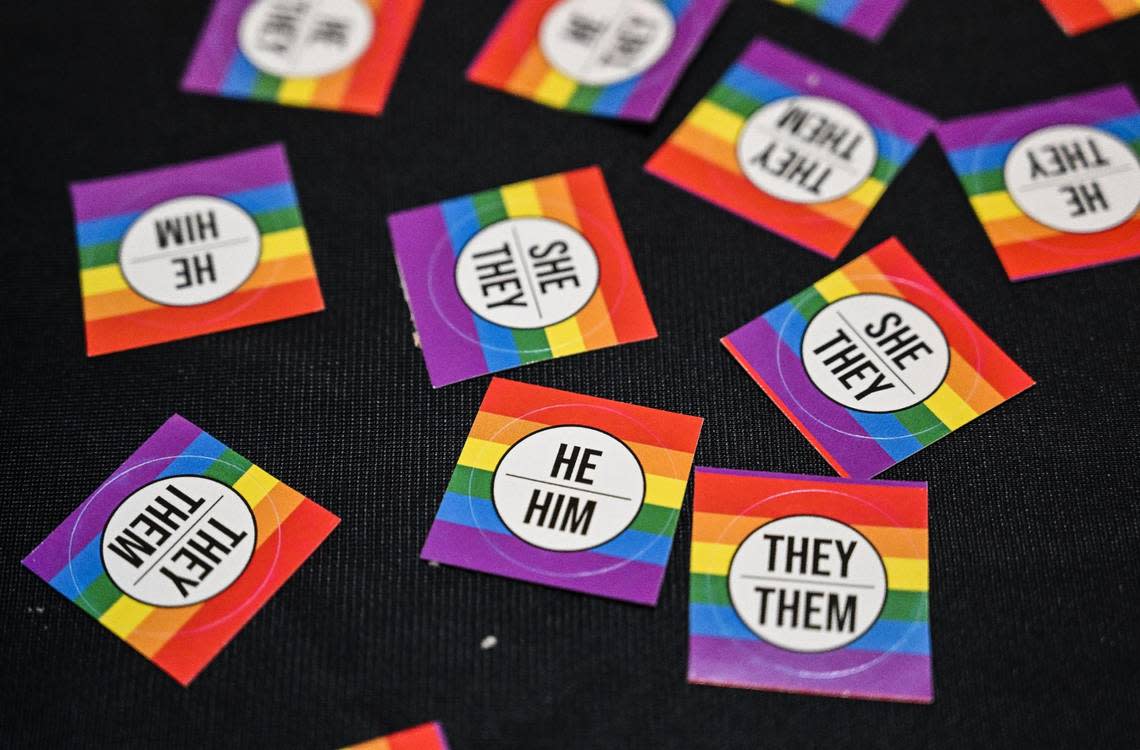Conversations between generations: Discussions on Pride month between editor and reporter
Sometimes it’s hard to wrap your mind around the experiences and lifestyle differences from one generation to the next. Other times, the differences are so acute it’s a wonder people of different generations can even have conversations.
One of those tough topics revolves around the LGBTQ+ community. While queer people have existed for millennia, with references to gender and sexuality in some of the earliest available texts, the acceptance and understanding of them has been a controversial topic in the United States.
As a young queer person who grew up in a highly religious family, I’ve seen my fair share of conversations between generations about the LGBTQ+ community. While they weren’t all pleasant, I learned from each of them. I’ve come to a fairly good understanding of different generations’ general understanding of queer folk. The misconceptions, the propaganda, the arguments and preconceived notions vary from generation to generation, and each person is going to be different. But addressing the different perspectives is the best way to move forward.
When I can, I like to use my learned understanding to engage in healthy, proactive conversations with those who are interested in gaining a deeper understanding. I’ve found that there are many people with genuine questions about but very little exposure to queer communities. Some people just don’t know how to navigate their questions respectfully, or are too hesitant to even try asking.

My editor is a straight woman in her mid-40’s who says she’s observed this hesitance to ask questions for fear of creating bigger misunderstandings, even in herself. So, we decided to have a conversation and record it for the benefit of others in her position.
We prefaced the conversation with the mutual understanding that queer people do not exist to answer cishet (cisgender and heterosexual) questions and engaged on the basis of professional respect. I regularly bring up queer issues, inclusion and topics, which helped to lead to the idea of a question and answer. It’s important not to assume you can ask any question you have to the queer people in your life.
Also, I am only one individual and do not represent the LGBTQ+ community as a whole. While I tried to answer my editor’s questions using general statements, every queer individual is different and should be treated as such. Someone could disagree with every answer I gave, it doesn’t make them less queer.
That said, here is the conversation between myself, Karlee Van De Venter, McClatchy’s Service Journalism Reporter at the Tri-City Herald, and my editor, Genevieve Belmaker.
Note: This conversation has been edited for publication and for clarity.
A discussion on Pride Month
Genevieve Belmaker: My first question is actually how long has Pride month been around? I feel like I’ve just really been hearing about it in the last few years. Is it actually a longer tradition?
Karlee Van De Venter: Oh yeah! It’s been a tradition in queer communities for a long time. In the last few years it’s been more commercialized and normalized. It was started in 1970, following the Stonewall riots, which started in June 1969.
GB: But is it only for people who identify with that community? Or can everyone celebrate and support?
KV: That honestly depends on who you ask. In general, only people who are accepting and proud of the community should attend, not protesters or anyone with ulterior motives. But of course that’s not something you can see, so there isn’t any real “you can come in and you can’t.” It’s just meant to be a place without hate. If you want to attend a Pride event and show your support, celebrate queer inclusion, you should be just fine.
GB: As someone who has never been to a party or an event celebrating Pride month, what could one expect to encounter? If I were to believe Hollywood’s depiction, they are incredible opportunities for everyone to get insanely creative with their clothes, hair, makeup, jewelry and shoes. How accurate is that perception?
KV: Yes for creativity! Whatever you want to wear, look like, dress as, basically anything goes. Whatever pride means to you. Each Pride event will be different, but in general they’re pretty high energy. Music, drag performances and rainbows everywhere, all generally at most Pride fests. In my experience, everyone is really outgoing and friendly, no matter how decked out and crazy or toned down and under-dressed you are. A lot of people consider it an opportunity to meet people, make friends and connections with folks they know accept them. But like I said, each event is different, so there’s likely to be surprises and unique aspects.

GB: I feel like we hear about Pride parades a lot during Pride month, but what other types of activities are there?
KV: Tons of stuff! There are be Pride bar crawls, drag shows and all sorts of activities for queer people. This doesn’t mean it doesn’t allow cishet people to attend, just that all queer people are welcome. I’ve seen LGBTQ+ karaoke nights, pop up markets, laser tag, you name it. A lot of businesses will even do specials for the month revolving around queer themes.
GB: So if I wanted to join an activity to show support and solidarity, it would be okay to attend one of those events?
KV: Totally. As long as you’re respectful, you’ll be welcomed.
LGBTQ+ allyship
GB: Speaking of showing solidarity, as a journalist I often see news reports of someone from the LGBTQ+ community being physically attacked or otherwise targeted. Is personal safety a top-of-mind concern within the community?
KV: Definitely. Especially with the scare in Idaho last year, when a group of Proud Boys was preparing to ambush a pride event but were arrested before entering. People from across the country had traveled to Couer d’Alene and dozens were arrested for conspiracy to riot. The pictures from that day honestly terrified me. I think it’s pretty common among queer folk right now to worry some about mass gatherings for pride, because it unfortunately is a target. While we’ve made a lot of progress in the country regarding LGBTQ+ rights, there is still the lurking threat of violence. Mass gatherings tend to amplify that, but it’s always a possibility, which is frightening.
GB: So how can people be supportive in more typical environments, like the workplace?
KV: It’s the little things that go a long way. First, offering the same respect toward LGBTQ+ coworkers as anyone else in the workplace.
Second, try to actively consider queer aspects. Make sure you’re thinking about pronouns in conversations, about possible queer perspectives. Consider what is and isn’t appropriate to discuss with them, especially in the workplace. For example, before having this conversation, you and I agreed we would discuss these topics. Queer folk are often bombarded with these types of questions, and even more intense questions. Topic matter should be carefully considered and language should be double-checked when you’re talking about LGBTQ+ subjects, whether for work purposes or personal curiosity. Queer coworkers will notice who doesn’t approach them this way, who refrains from prejudiced conversations, that sort of thing.
Those two steps may seem obvious, but they are not common. The last thing I’d suggest is always be ready to learn, to ask questions when they’re appropriate and be receptive to the answers you receive. It’s okay to not know how to use someone’s pronouns, how to address a transition, and so on. Just ask kindly, correct any slip-ups and do your best. That’s a huge gesture for sure.

GB: Are there any websites or books you recommend that have good information that people can read up on?
KV: The Harvard Business Review released a great article in April revolving around the idea of how to be a better ally. But in general, campaigns, nonprofits and foundations for queer people are a great resource. They often have pointers for allies and those learning about queer topics for the first time, and there’s almost always a list of articles and resources for further research. They are great starting points for anyone wanting to dive in without stumbling across a less-than-adequate resource.
The Human Rights Campaign has a large compilation of resources across various topics, as does the Trevor Project. Also, GLAAD continuously updates its stories and links other relevant articles and resources.
As far as books go, “Queer Intentions” by Amelia Abraham is well-received, and “The Gay Revolution: The Story of the Struggle” by Lillian Faderman has more of the historical background. I personally recommend “Transgender Warriors: Making History from Joan of Arc to Dennis Rodman” by Leslie Feinberg.
A lot of libraries are including LGBTQ+ sections as well, and can likely recommend books for “beginners.”
